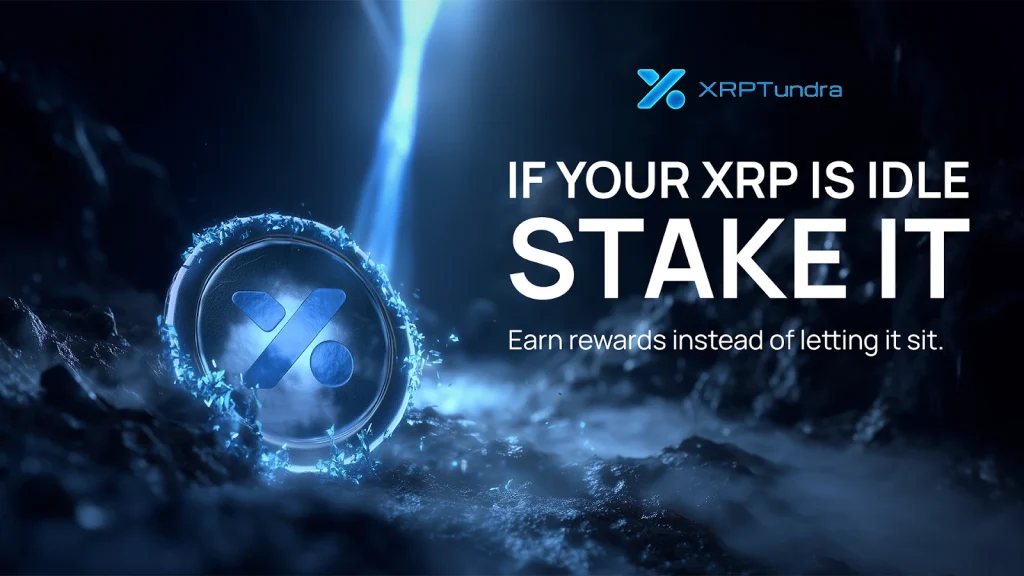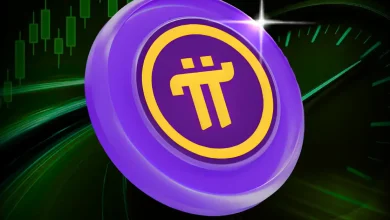Cryptocurrency Concepts Reimagined: XRP Tundra Presale Offers Chainlink-Style Utility with 100x Potential

While many presales rely on hype, XRP Tundra takes a structural approach closer to Chainlink’s architecture than any meme-era project. Tundra runs simultaneously on Solana and the XRP Ledger, creating a dual-chain environment where execution and governance are separate but interdependent. Solana handles the high-frequency yield and liquidity operations; XRPL manages reserve integrity and decision-making.
This design eliminates the dependency on hype cycles by replacing volatility-driven growth with throughput-driven sustainability. Each interaction, from staking to liquidity provisioning, is quantifiable, auditable, and self-contained within a cross-chain structure. The model brings the functional discipline once associated with Chainlink’s oracle network into a yield-oriented economy.
TUNDRA-S and TUNDRA-X: Two Chains, One Economy
Tundra’s economic model centers on two coordinated assets. TUNDRA-S, the Solana-based utility token, drives yield generation, liquidity provision, and staking operations. TUNDRA-X, issued on XRPL, governs protocol parameters and maintains ecosystem reserves. The system ensures that transactional power and governance control remain in separate domains, preventing the conflicts that weakened early DeFi ecosystems.

In Phase 5, investors purchase TUNDRA-S at $0.091, gain a 15% token bonus, and receive an equal amount of TUNDRA-X free of charge, valued at $0.0455. With launch prices set at $2.50 and $1.25, the valuation spread translates into a 100× theoretical multiple under full-market conditions. Unlike legacy token sales, the entry mechanics are defined upfront.
How Cryo Vaults Turn XRP into a Yield Network
The Cryo Vaults form Tundra’s yield backbone. Once staking activates post-launch, XRP holders can lock their tokens directly on-ledger to earn up to 30% APY, creating a native yield layer for one of crypto’s most stable assets. The system’s innovation lies in Frost Keys, NFT instruments that modify staking parameters dynamically. Each key can alter lock duration, enhance reward multipliers, or unlock new yield tiers.
This interaction transforms staking into an adaptive mechanism rather than a fixed-term deposit. All logic runs natively on the XRP Ledger, avoiding the wrapped-asset risks that have caused losses in other ecosystems. Cryo Vaults are also interconnected with the project’s liquidity layer: as trading activity grows, a portion of the collected fees flows back into the vault reward pool, linking market participation directly to yield sustainability.
DAMM V2: Liquidity That Thinks for Itself
XRP Tundra employs Meteora’s Dynamic Automated Market Maker (DAMM V2) to stabilize token value during and after launch. Unlike static AMMs that rely on constant product formulas, DAMM V2 adjusts trading fees dynamically over time. Fees start high — around 50% — and decline exponentially toward 0.25 %. This time-based decay discourages bot activity and early dumping, protecting the token’s initial market equilibrium.

Liquidity providers receive their pool positions as NFTs, allowing traceable, transferable ownership with embedded parameters such as fee tier and contribution weight. The system also supports permanent liquidity locks, ensuring that a foundational layer of tradable depth cannot be withdrawn. Since all collected fees are distributed to stakers through Cryo Vaults, Tundra’s liquidity engine doubles as a revenue channel for long-term holders.
The architecture resembles Chainlink’s data-validation logic—replace data oracles with liquidity oracles, and you have a self-regulating ecosystem that monetizes participation without external control.
Verified Systems Prepare Tundra for Institutional Scale
The project’s emphasis on technical discipline is reinforced by multiple independent verifications. Cyberscope confirmed contract efficiency, Solidproof validated liquidity mechanisms, and Freshcoins reviewed distribution compliance. The team’s credentials are publicly verified through Vital Block KYC, completing a transparency suite rarely seen in presale environments.
A recent technical walkthrough on Crypto DexWorld’s YouTube channel showcased how Tundra’s architecture connects each mechanism — staking, liquidity, and governance — through interoperable smart contracts rather than external relays. The level of modular integration positions the project closer to infrastructure-grade platforms than to traditional presales.
For technically minded investors, the value proposition mirrors Chainlink’s 2018 stage: a working architecture priced at presale levels. As DeFi enters its next phase, Tundra’s dual-chain ecosystem could define how yield, governance, and liquidity interact in one self-sustaining framework.
Audited, verified, and still undervalued — XRP Tundra’s presale is filling fast:
Website: https://www.xrptundra.com/
Medium: https://medium.com/@xrptundra
Telegram: https://t.me/xrptundra
X: https://x.com/Xrptundra
Contact: Tim Fénix — contact@xrptundra.com
Disclaimer and Risk Warning
The content featured on Coinpedia's press release page is provided for informational purposes only. Coinpedia does not endorse, verify, or take responsibility for the accuracy, completeness, or reliability of any press releases or associated materials. Any views, opinions, or statements expressed in these press releases are those of the respective issuers and do not reflect the opinions or positions of Coinpedia. Coinpedia is not liable for any content, products, services, or actions mentioned in the press releases. Readers should independently verify the information before taking any actions related to the subject matter of the releases.








